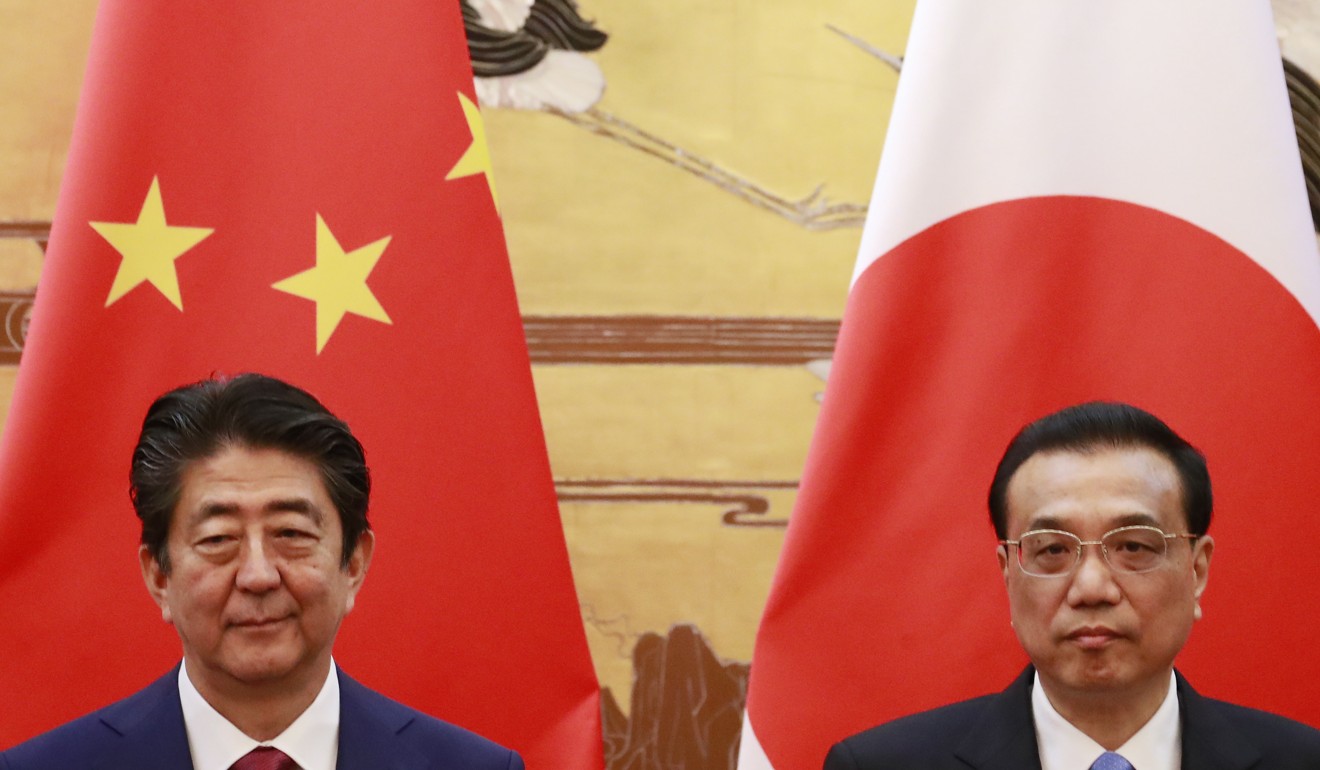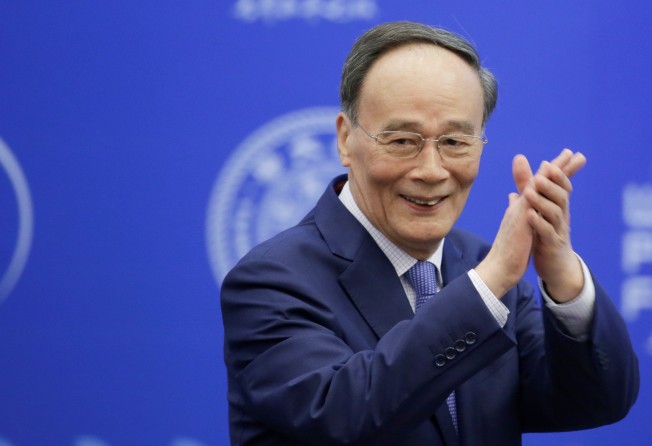
China to send Wang Qishan to Japanese Emperor Naruhito’s enthronement
- Vice-president will attend ceremony as Xi Jinping’s special envoy and will also represent Beijing at Indonesian President Joko Widodo’s inauguration
- Analysts see it as a goodwill gesture amid thawing relations between Beijing and Tokyo

Chinese Vice-President Wang Qishan will attend Japanese Emperor Naruhito’s enthronement ceremony in Tokyo next week, the latest sign of improving ties ahead of President Xi Jinping’s expected state visit to Japan next year.
Chinese foreign ministry spokesman Geng Shuang on Monday said Wang would attend the ceremony as Xi’s special envoy and he would also represent China at Indonesian President Joko Widodo’s inauguration for his second term on Sunday.
Relations between Tokyo and Beijing have been warming after they sank to a 40-year low following the Japanese government’s purchase of disputed islets in the Diaoyus – or Senkakus as they are known in Japan – in the East China Sea in 2012, sparking big protests in China, damaging trade ties and even raising fears of a military clash.
But the turning point came last year, when Chinese Premier Li Keqiang went to Japan and Japanese Prime Minister Shinzo Abe visited China.

Zhou Yongsheng, who specialises in Sino-Japanese relations at the China Foreign Affairs University in Beijing, said it was a goodwill gesture to send Wang as the president’s special envoy to attend next week’s ceremony.
“Sending the vice-president to this [ceremony] is a top-level arrangement made by the Chinese side because it is essentially just one level below the president going himself. This shows that China highly values Japan and its determination to improve Sino-Japanese relations,” Zhou said.
“Another mission of the trip will obviously be to pave the way and [make] plans for President Xi’s visit next year,” he said.
The Chinese president is expected to make a state visit to Japan in spring next year, Beijing’s ambassador to Japan said before Xi and Abe met ahead of the Group of 20 summit in Osaka in June.
Xi and Abe have not held talks in the context of an official visit by either side since both leaders took office in 2012.
“Also, obviously Wang represents more than his title of vice-president,” Zhou said. “Special envoy is a title that is on behalf of the president himself – and that is to show respect for the enthronement.”
Wang, 71, stepped down as one of seven Politburo Standing Committee members of the Communist Party in 2017. He has remained a close aide to Xi and became vice-president last year – a rare move for a cadre who has passed the unofficial retirement age of 68.
Wang has taken on a diplomatic role since Xi began his second term in March last year, meeting heads of state and speaking at international forums.
Wang Ping, a researcher on China-Japan relations at the Chinese Academy of Social Sciences, said it was no surprise that Wang Qishan would be sent to the ceremony.
“But it’s also worth noting that China is sending a more senior official than the last time – this shows that Beijing sees an improvement in its ties with Japan in recent years,” Wang Ping said.
In November 1990, China sent vice-premier Wu Xueqian to attend the enthronement ceremony of Emperor Akihito.
Emperor Naruhito’s ceremony on October 22 is expected to be attended by global political leaders and international royalty from some 170 countries, which would make it the most well-attended imperial enthronement ever. Invitations were sent to all 195 nations that Tokyo officially recognises.